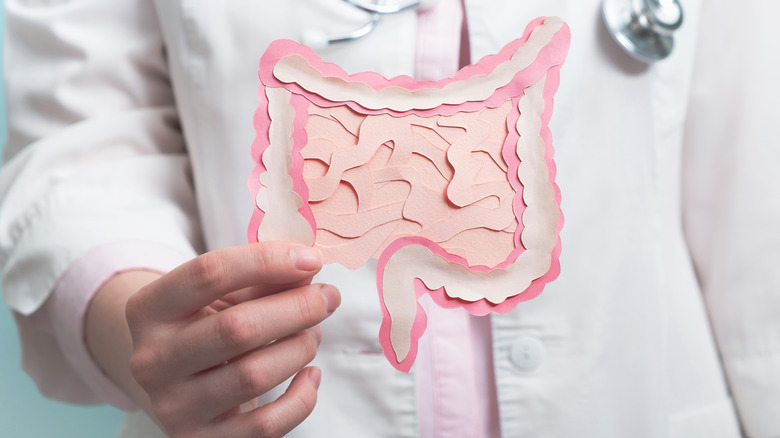What It Means When You Have A Blood Clot In Your Stool
Blood clotting, also known as coagulation, is a natural response of the body to stop bleeding when the blood vessels get injured or cut, according to the American Society of Hematology (ASH). A blood clot develops after platelets and plasma combine to create a clump over the opening. The clot, later on, dissolves on its own. However, at times, certain diseases or health complications may cause unnecessary clotting in the body, leading to life-threatening situations, warns Medline Plus.
A blood clot that enters the blood vessels in the lower abdominal region, such as the pelvis and lower limbs, is called deep vein thrombosis (DVT). Similarly, a blood clot that reaches areas like the lungs can lead to a pulmonary embolism — a condition that disturbs the respiratory system and inhibits oxygen supply to vital organs. Sometimes, blood might appear in your stool, reports Healthline. You may notice blood clots while wiping after excretion or in the toilet. These clots are often a sign of a serious disease, particularly in the colon.
What does a blood clot in your stool mean?
Blood clots in stool are usually dark in color, like red, or black, according to Medical News Today. Clots in stool appear for many reasons. In fact, one possible disease related to it is peptic ulcer, a condition that causes your intestinal, stomach, or esophageal lining to feel unsettled, which could lead to severe damage. In this case, you might notice a few symptoms, such as abdominal pain, weight fluctuations, bloating, or stool clots.
Another reason for blood clots in poop is diverticular bleeding (via Healthline). Diverticula are small sacs filled with blood that develop in the large intestinal wall and cause excess bleeding in the stool. You may even notice distinguished blood spots after discharging waste matter. Although it usually stops on its own, if the bleeding does continue, you may have to undergo surgery. Some symptoms include fever, abdominal cramps, bowel movement, and blood clots in the stool (per Medical News Today).


